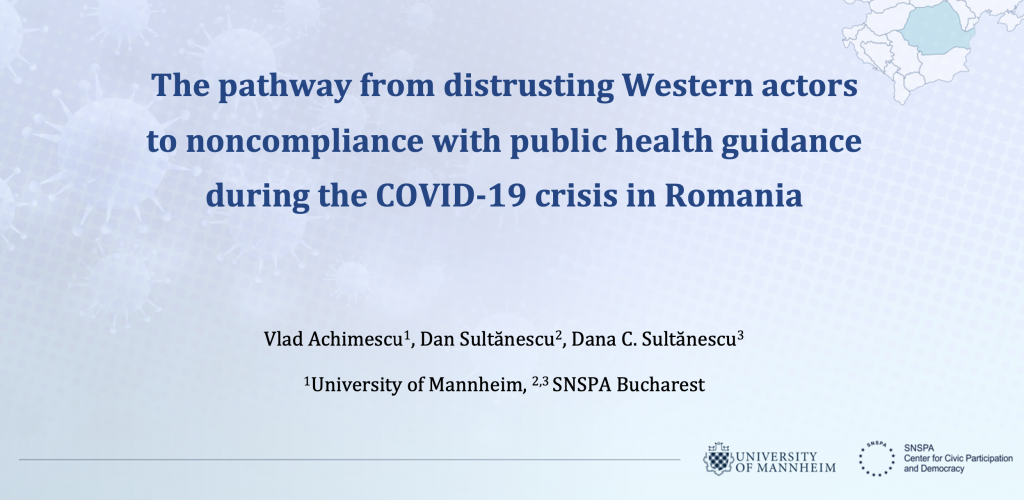Authors:
Vlad Achimescu1, Dan Sultănescu2, Dana C. Sultănescu
31University of Mannheim, 2,3 SNSPA Bucharest
Soon, the research data will be available here.
The paper was accepted for ECPR Virtual Conference 2020
Abstract:
Global crises provide a fertile environment for the proliferation of disinformation, rumors, and conspiracy narratives. Geopolitical actors can take the opportunity to disseminate self-serving theses and undermine the efforts of governments to fight a crisis such as the COVID-19 pandemic. Romania is one of the most pro-Western countries in Eastern Europe, but its population is not immune to disinformation originating from anti-Western actors.
We investigate people’s perceptions and beliefs related to COVID-19 in Romania, during the lockdown period (April 2020) and during the state of alert period (July 2020), by fielding two surveys with different modes of collection (CATI and web). Building on measures tested in other countries, we identify the public’s vulnerability to conspiracy narratives and its willingness to comply with public health guidance. Using Structural Equation Modeling, we check if individuals exhibiting pro-Russian or anti-Western attitudes believe more strongly in COVID-19 conspiracy narratives compared to the rest of the population. Then, we check if those believing conspiracy narratives are less susceptible to comply with public health recommendations.
We find in both surveys that holding conspiracy beliefs is a mediator between distrusting Western actors and noncompliance with COVID-19 guidelines. Thus, pro-Russian and anti-EU, U.S. and NATO attitudes are linked to stronger conspiracy beliefs, which relate to lower levels of concern and knowledge regarding the virus, which in turn can reduce compliance with guidelines. This suggests that openness to anti-Western narratives may have behavioral consequences. These findings highlight the potential sources of unsafe behaviors during the pandemic and can inform official communication strategies meant to counter both disinformation and non-compliance with public health policies.
VIDEO – https://www.youtube.com/watch?v=s6Men0D9T90
PAPER – https://ecpr.eu/Events/PaperDetails.aspx?PaperID=55767&EventID=156
